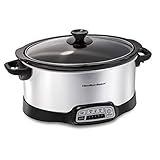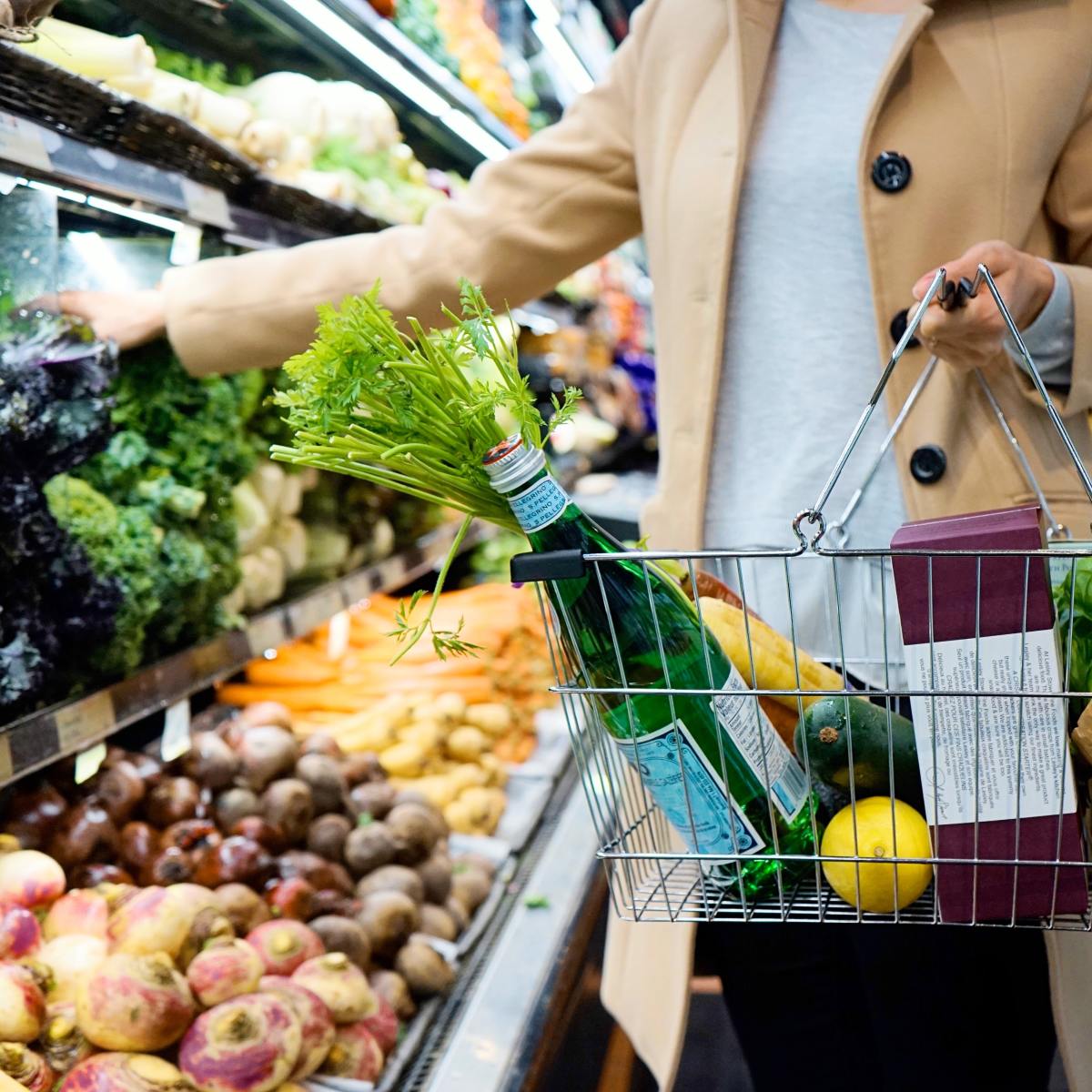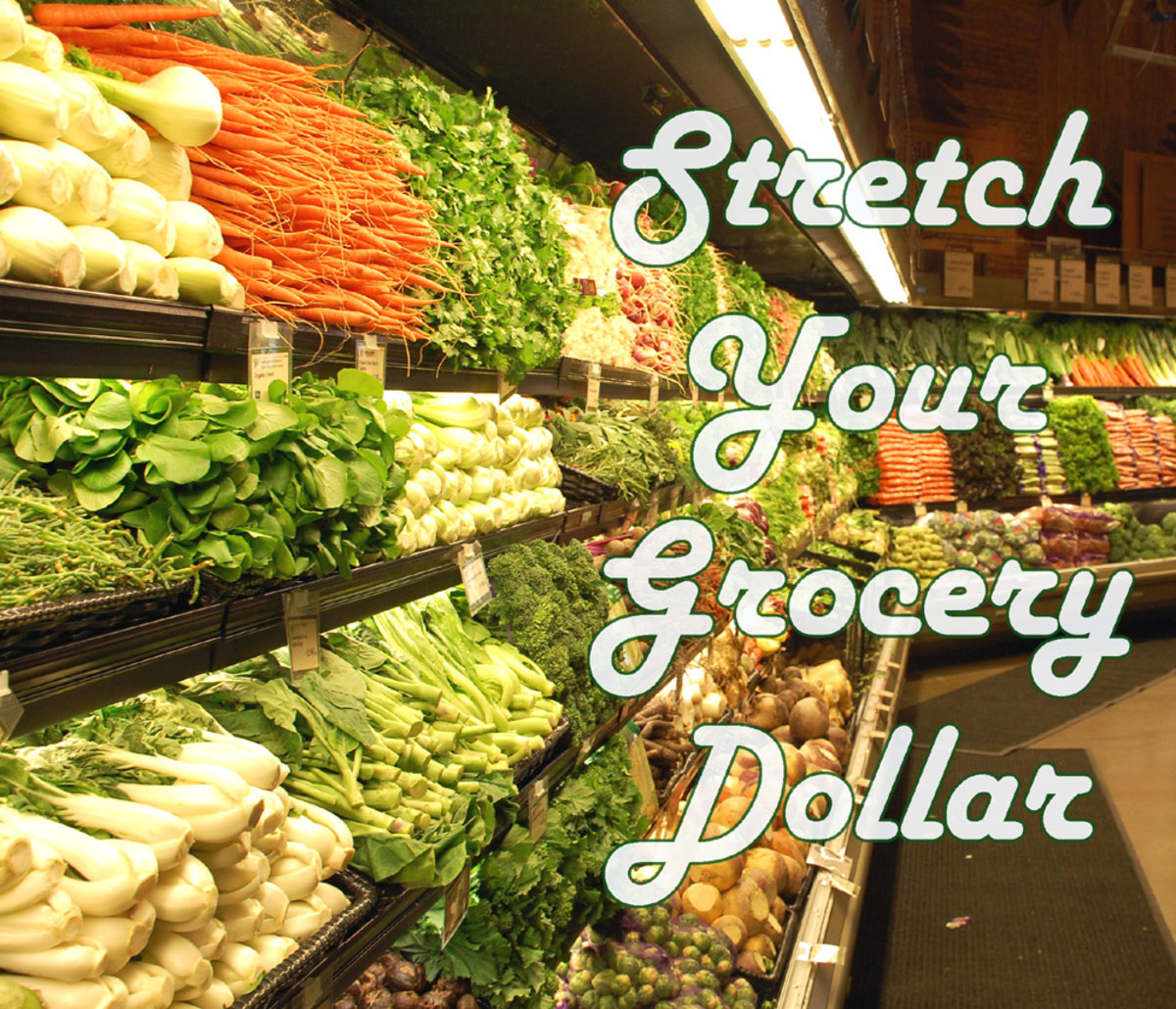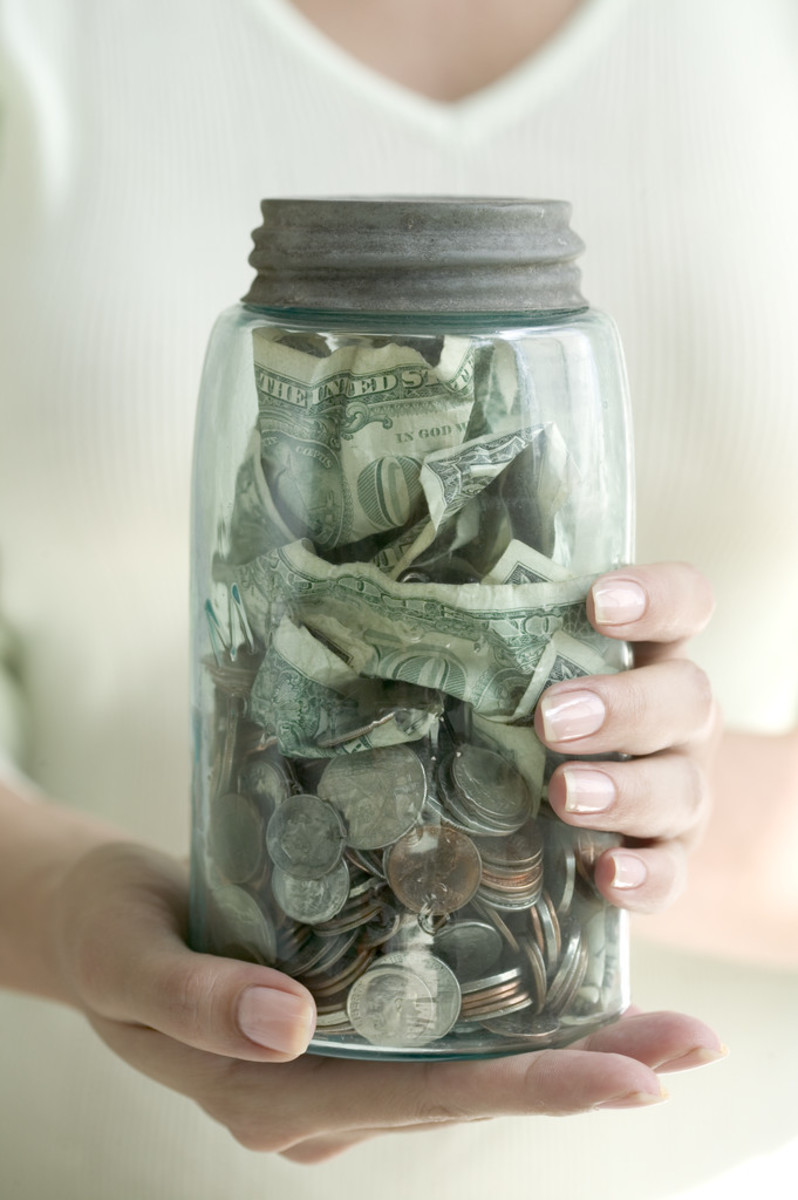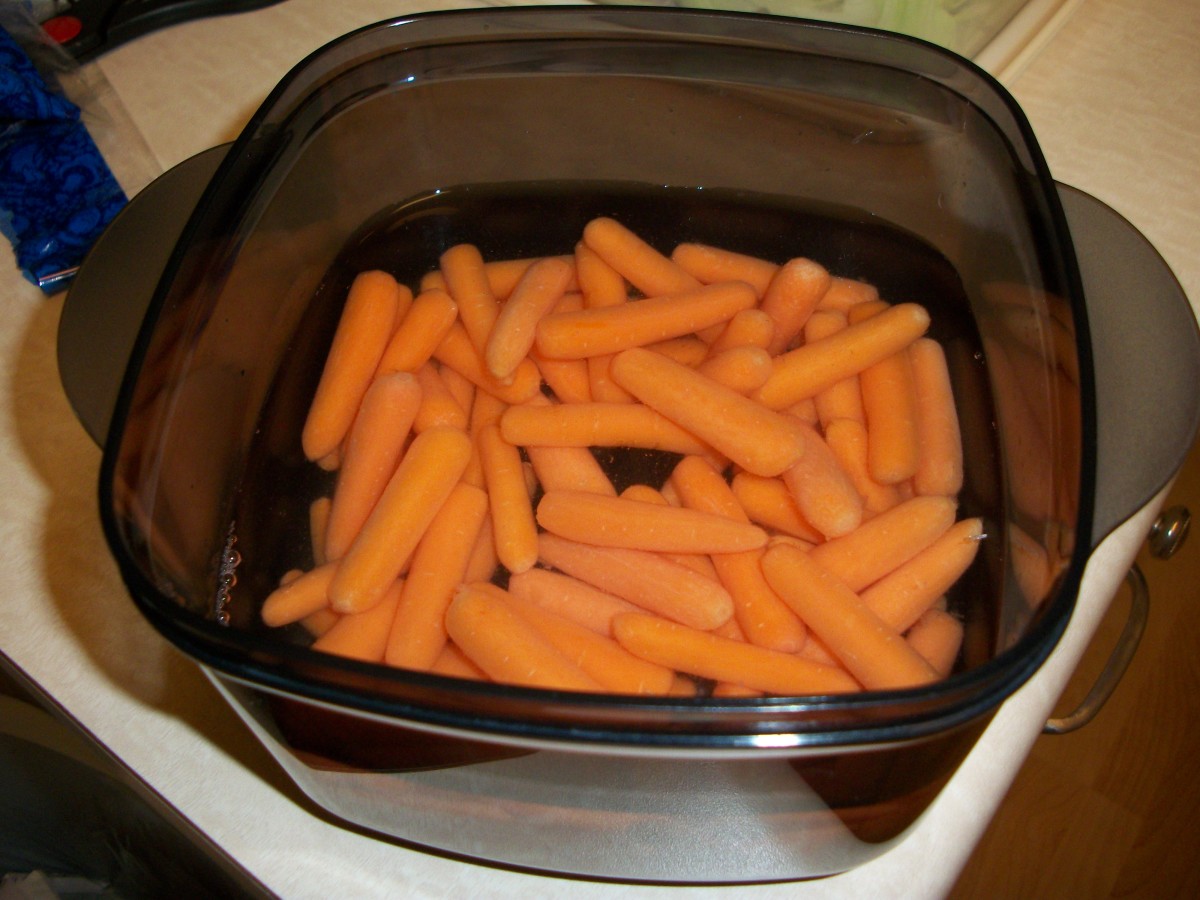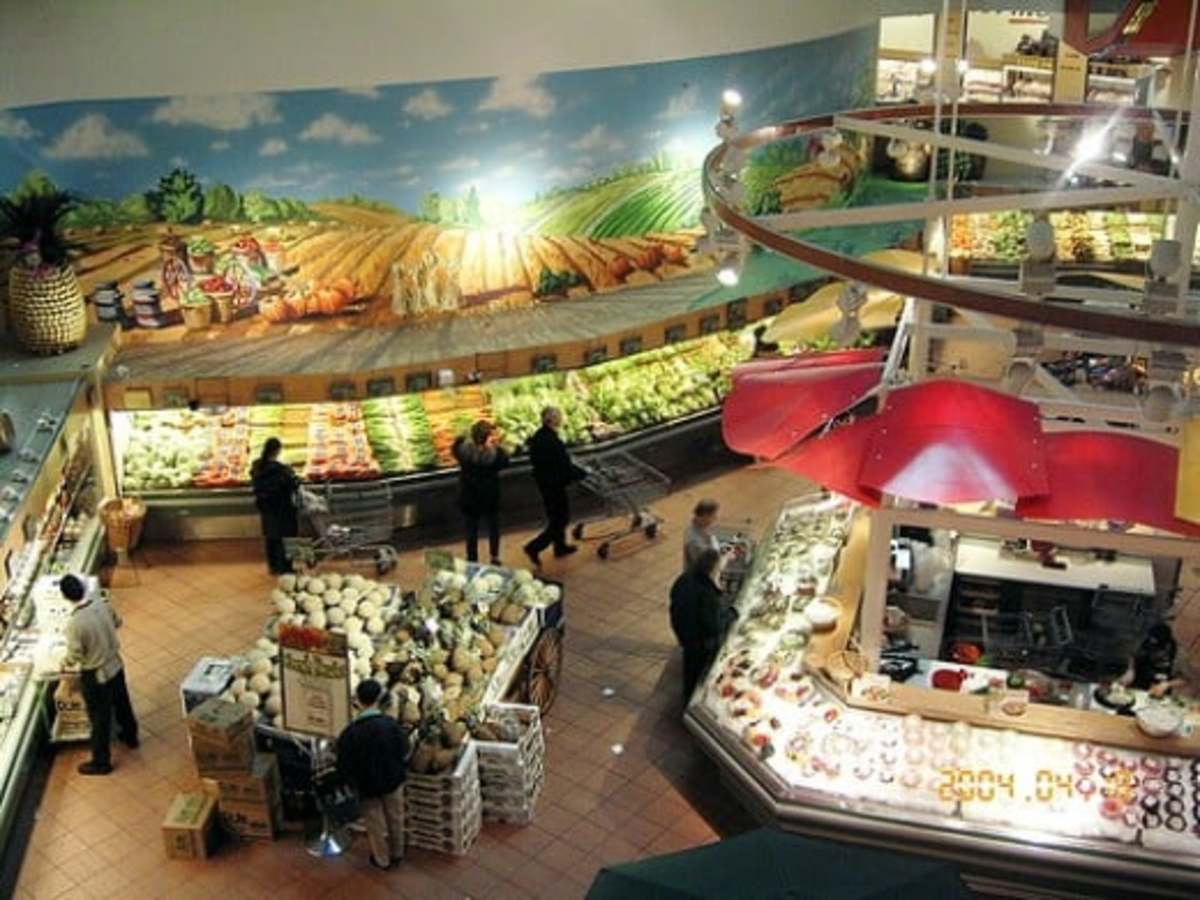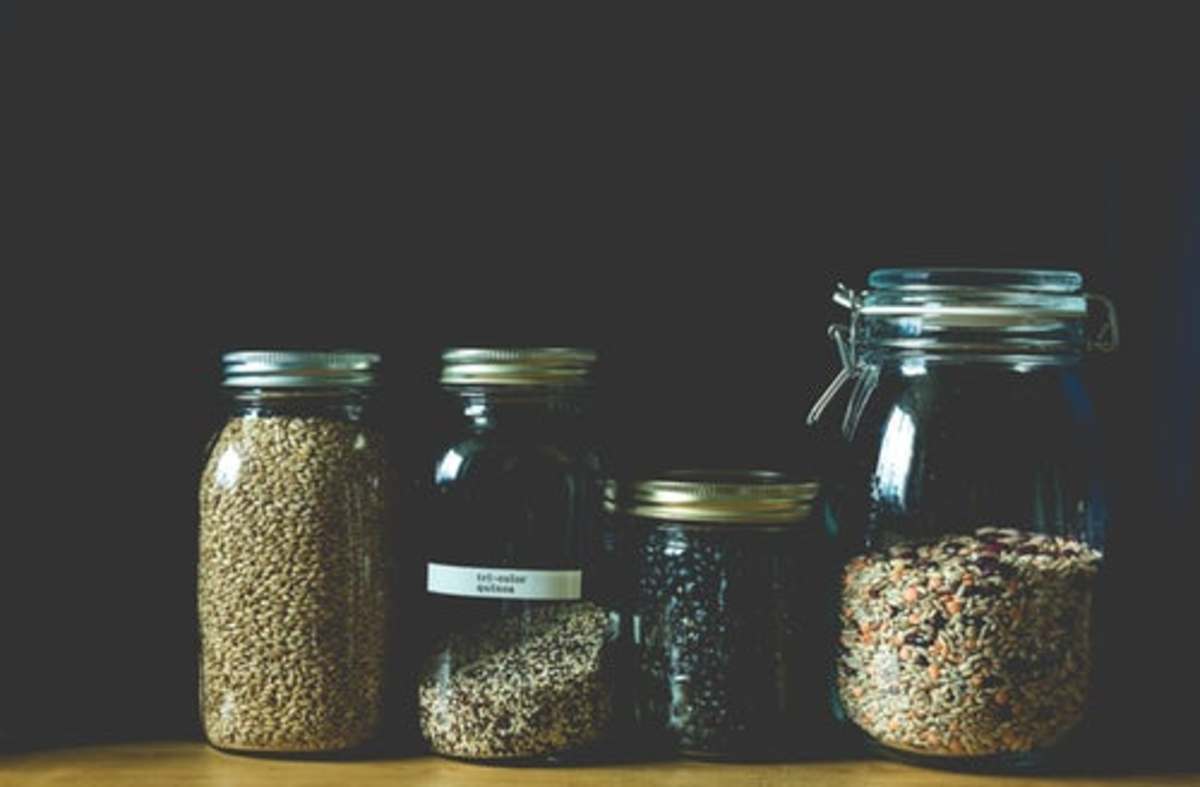- HubPages»
- Personal Finance»
- Frugal Living»
- Household Expenses
Saving Money On Groceries
A Little Planning Goes a Long Way
With more and more people out of work, or at least, working for far less than they are used to, we could all use some advice on saving money. Prices at the grocery store seem to go up, even as our paychecks get smaller. I know my money doesn't go as far as it used to, so I have learned a few things, been taught a few, as well, and have saved myself a lot of money.
I am frequently amazing the cashiers at my local grocery store, when they see how much I saved on my bill. I even had one guy look at me, amazed, and said, "I don't think I have ever seen a customer save that much money, ever!" I giggled, and walked away.
With a little work, a little planning, and a little smarts, you can save a bundle every week on your grocery bill, and turn it into thousands of dollars worth of savings at the end of the year. Some of the tips are fairly easy to implement, and others require a little bit of effort, but in the long run, it is well worth it. Who couldn't use a extra few thousand dollars at the end of the year? I know I could.
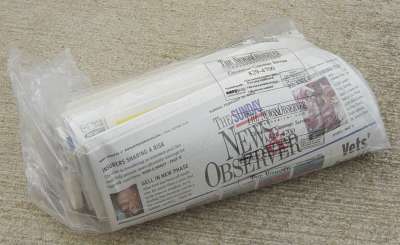
Before You Head to the Store
Smart shopping starts even before you grab your keys and leave your house. With a few simple steps, you can start saving money on your grocery bill even before you walk out the door. How?? It's easy. It's all about planning ahead.
- Read the paper: Check out the store fliers that come in your paper. I suggest at least signing up for a Sunday subscription to your local paper. Though some of the grocery stores put their ads in the Wednesday paper. Most newspapers also offer a Wednesday and Sunday subscription offer. The Sunday paper is the one that comes with all the store fliers and coupons. Save the coupons! We will cover coupons later. Read through the fliers, see what's on sale and where. If you see something you want or need, make a note of it. Start a pre-list with a few things you found in the ads and what store flier you found them in. These days, many grocery stores have their sales fliers online, or available through an app. Check out those options if you don't want to get the paper.
- Special Sales: Pay attention to special sales, like 10 items for $10. At some stores, you must buy all ten to get the special pricing. Some do not. My favorite grocery store does not require you to purchase all ten to get the special price. Beware of stores that do, as you may not need that much. Pay attention to BOGO deals. These are great for things you use a lot, or that can be stored for later use. When I see a BOGO deal on ketchup, for instance, I stock up when I know I am running low. We always use ketchup, and it won't go bad sitting in my pantry. But, don't just buy something because it's BOGO. If you don't need something, don't buy it. The other day, my grocery store had sour cream BOGO. I am the only one in the house that would use it, so it would go bad before I used it all, so I didn't buy it.
- Make a plan: Plan out a few meals for the week, say about four or five. I will cover meal planning a little further on, as well. When you looked through the fliers, what was on sale? Was pork roast on sale at a great price? Plan your meals around what you found in the fliers, and what you know your family will eat. Who cares if salmon is on sale if you know no one will eat it? OK, so you have a few things you found on sale, and you have a few meals planned out for the week...now what?
- Make a list: So, you know what you are making for dinner...what else do you need to make it? You know what you need to make spaghetti, but what do you not have in your cabinets? Make a list around what you will need to make those dinners. Also include things you need for breakfast and lunch, cleaning supplies, etc. Again, make sure to keep track of what was on sale, where it was on sale, and what you really need. Don't add something to the list just because it was on sale. I know this sounds time consuming, but once you get the hang of it, it doesn't take that long. Again, there are great apps out there to keep track of your grocery list. Some grocery store apps or websites will let you make your grocery list from the items in the flier, just click the item in the flier, and mark it "add to list". So simple!
- Check it twice: Now that you have your list, you need to double check it, make sure you didn't forget anything that you really need. I like to keep a running list on my fridge of things I need, and I can jot things down, when I notice we are running low on something. It makes it easier to keep track of what we need when it comes time to make my list. Organize your list by store, and by section. This will help you to avoid wasting a lot of time walking up and down all the aisles of the store. This makes trips to multiple stores a lot less of a hassle. Let's say pot roast and toilet paper were on sale at Store A and cereal and potatoes were on sale at Store B. Group your list accordingly. Don't forget to keep the sales fliers close by to double check for other things you added to your list.
- Sorry, kids!: When you do venture out to the store, it's best if you shop alone, or with another adult. Leave the kiddies at home. You all know what will happen. "Mooomm, I want some fruit snacks!" "Moooomm, I want some candy!" and on and on. Not only does leaving the kids at home improve your sanity during grocery shopping, it makes the trip much faster, and you avoid spending extra money on things that you really don't need. If you want to treat your kids to a little candy, buy them some and give it to them when you get home as a reward for behaving while you were gone. Happy kids, happy parents, none of the whining and hassle.
- Eat something!: I cannot stress this one enough! Eat before you go shopping! Never, ever shop on an empty stomach! I have done this, and it didn't end well. I went to the store for a loaf of bread and some tomatoes. I came out of the store, having spent $45 on a bunch of stuff I didn't need, and wasn't really good for me. When you are hungry, everything looks good. You end up spending a lot more money because your stomach is in control. Take that control away and eat a meal before you head to the store. I usually shop in the middle of the afternoon, so I eat lunch before I head out to go to the store. It makes the trip a lot easier, and I spend a lot less money.
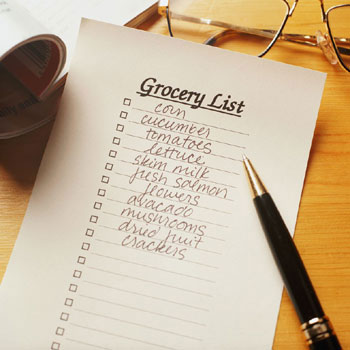
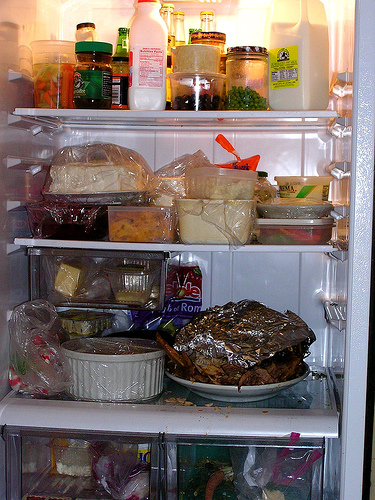
Meal Planning
Like I said, you should plan out your meals for the week. Pick out a few things to make for the week. You don't need to plan out every single day. I never do, mostly because I never really know what I am going to want to eat every day. You don't need to schedule meals for specific days, just have a few meal ideas planned out for the week. There are some simple tips to follow as you make your meal plan that will save you quite a bit of money.
- Leftover Night: This was a common night in my family. The day before garbage day was always leftover night. These days, since we don't eat a whole lot, we sometimes do leftovers two nights a week. I know what you are all thinking. Leftovers? Yuck! Some things are actually better the second time around. I love leftover beef stew and cold pizza. Get creative with your leftovers. Search for recipes that will make use of the leftover food you have in your fridge. I know that even with leftover night one night a week, we still threw out a lot of food. This leads me to my next tip.
- Scale Down: If you are finding that you still have a lot of food left over after dinner, and even after leftover night, maybe you need to look at what you are making, or more specifically, how much you are making. Either your family isn't really keen on a particular dish, or you are just making way too much food. If it's the former, you might consider dropping the dish from your meal planning. If it's the latter, there are a few things you can do. You can either divide the dish in half, and freeze some of it for a future meal, or you can cut down the recipe so you aren't making quite as much. Throwing out all that food is just a waste of money. Or add a second leftover night to save even more money.
- Slow Things Down: Using a slow cooker is a great way to save money, and save yourself a little time. A slow cooker cooks things over a longer period of time, so you can throw everything in there before you head to work, and dinner is ready and waiting for you when you get home. A slow cooker also allows you to take advantage of the lower prices of some of the less choice cuts of meat that tend to be tougher unless cooked slowly. Stew meat is fairly cheap, and beef stew is a great, inexpensive winter dish. It can also be made a variety of ways, so it is one of those dishes that avoids being boring. There are so many different dishes you can make in a slow cooker these days, it just takes a little research.
- Go Vegetarian: I don't mean every day. Just a night or two a week. Meat is usually the most expensive part of a dish. Try out some vegetarian dishes for a night or two a week. It can actually save you a lot of money, and some of the dishes are a lot more tasty than you might think. A lot of Indian dishes are vegetarian, and they are full of flavor. Indian food may be a bit spicy for some, though. Check out recipes for vegetarian chili or a vegetarian lasagna. Experiment with different recipes. Find a few you like and alternate them in your meal planning.
- Can It: Look for recipes that call for canned fish instead of fresh fish. There are a lot of easy and delicious recipes that call for canned tuna or canned salmon. Or try using imitation crab meat instead of real crab meat. I love salmon patties, and canned salmon works well. I remember one dish my mom always made. It was a simple tuna casserole, but we loved it, and we still ask her to make it every now and then when we go to visit. Fish is an important part of a healthy diet. And this way, you can incorporate fish into your diet, and still save a little money.
- Brown Bag It: I covered this tip in another hub on saving money, but I felt it needed to be included here, as well. I am fortunate. I work for a hospital that gives me a discount on my meals, and I usually spend less than I would if I had made my lunch. Many are not that lucky, though. A lot of people spend around $5-10 a day on lunch at work. That adds up fairly quickly. Bringing your own lunch to work can save you a bundle, especially if you bring some of that left over food that is in your fridge as your lunch. You had turkey the other night for dinner, well, use some of that turkey to make yourself a turkey sandwich.
- It's Not Delivery, It's Homemade: Ordering pizza from your favorite local pizza place is a great treat every now and then, but it can become a habit that gets repeated several times a month. At around $20+ every time you order that pie, that's a big chunk of change out of your pocket. Try making your own pizza instead. I love doing this! Everyone can have what they want on their pizza, and it costs a fraction of what you would spend on ordering one. It tastes better, too, and you know that the ingredients are fresh. Fresh vegetables and the homemade dough make the pizza that much better. The kids will get a kick out of making their own pizza, picking out their own toppings and getting exactly what they want.
A Great Slow Cooker
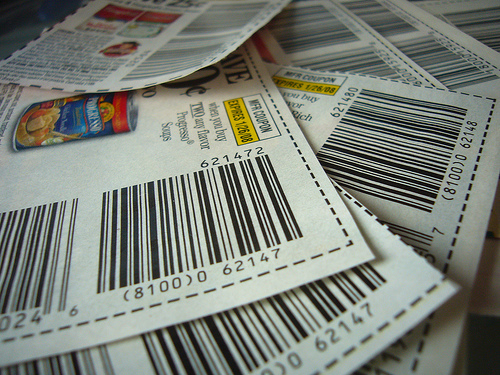
Coupons!
Remember that newspaper? Remember those coupons? You saved them, right? If not, that's alright. You have other routes you can go through to get coupons. Coupons are a great way to save a lot of money. Most people avoid coupons because they are often for things we don't usually buy. But, every now and then, you come across some coupons for things you use quite often, or for something you have been wanting to try. Clip those coupons and save them. Use them when you do your meal planning and when you make your shopping list. If you find a coupon for a toilet paper brand that you don't normally use, but it's still a good brand, save it. You always need toilet paper, and if you have kids, you go through it pretty quick. Keep track of the things you buy when you look through the coupons.
My favorite grocery store even has an app where I can see the ad for the week and even 'clip' coupons digitally. At the store, I just enter my phone number, and the coupons are applied automatically.
You can also get a lot of coupons online now, as well. There are many websites that offer coupons and discounts, and can even tell you where you can score some free items, as well. There are often coupons available at company's websites. You can also get coupons at several websites that are devoted to the subject.
- coupons.com: Coupons.com is a great website that offers thousands of discounts and coupons for a wide variety of things, not just grocery items. This website offers a search by your zip code. I had a slight problem with this, as I could find no offers for my zip code, though I am unsure as to why. They have categories for such things as entertainment, automotive and restaurants. A few I found were;$1.00 off any brand of cheese and $2.00 off Huggies diapers.
- CouponMom.com: CouponMom.com is another website that offers a large number of printable coupons. They have coupons for prescription medications, eye glasses, and portrait packages. You need to create an account to use the site, but it is simple, only takes a minute, and it is completely free. They have grocery deals by state with major grocery chains in the area listed, as well as drug store listings. They have a large database of printable coupons. A few I found were; $5.00 off Purina Pro Plan dog food and $3.00 off Similac Infant formula.
- CouponCabin.com: This website, aside from offering a wide range of coupons, also offers a clearance search. You can check what stores and websites are offering clearance deals. I loved this feature! You can do a search by store or coupon type. They offer printable coupons, local coupons, grocery store deals and sales information. A few coupons I found were; 15% off at Sports Authority and $2.50 off of Scott toilet tissue.
- ShoppingNanny.com: ShoppingNanny.com is a site I did not get to check extensively, due to the fact that it has a price attached to it. It costs $5.95 a month, but they offer a guarantee, that if you spend over $90 a week on groceries, and use their list feature, they guarantee that you will save $40 a month or your next month is free. I think it might be worth the six bucks a month to try it out. A local Sunday newspaper subscription will run you close to the same amount every month.
- MyCoupons.com: MyCoupons.com is another site that sets itself apart. It offers a wide variety of coupon categories, including clothing, pets and even weddings. They offer local coupons, printable coupons and even discount gift cards. A few coupons I found were; $1.00 off of Nature Made Vitamin C supplement and a free week of unlimited music downloads from Napster.com.
Coupons
- Coupons.com
Get Coupons for Your Favorite Brands! Print Free Coupons and Save Today! - CouponMom.com
Featured on Oprah,Today Show,NBC News,CNN,Fox,ABC. Coupons, Grocery coupons, printable coupons, restaurant coupons. Free grocery coupons and deals lists in 50 states for Target, Wal-Mart, CVS, Walgreens, Rite Aid, thousands of grocery stores.
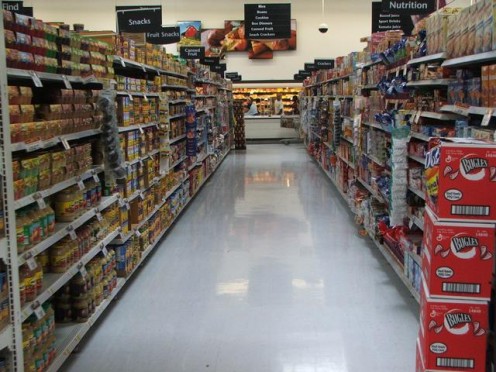
At The Store
Now that you have done all that planning, you have your stack of coupons and your shopping list in hand, it's time to head to the store. There are still a few tips to keep you on the right track and save you even more money!
- Bring a Calculator: I know some of us are math geniuses and can do all that math in our heads, but I am not one of those people. I depend on a calculator far too often. Most of you have one on your cell phones, so you don't even need to bring one along. Just make sure you make use of it. If you come across something that looks like it might be a great deal, do the math and find out for sure. You may be surprised as to what actually ends up being a good deal and what doesn't.
- Shop Around: Shop more than one store, or look for stores that offer price matching. Some stores will match, or even beat, the price of a competitor on the same product, if you can show the sales flier. This is often a hassle, though, so often, it is better to just shop multiple stores to save the most money. If you live in an area like I do, there are several stores in a very short distance, so the cost of gas isn't an issue. I shop at a discount store for certain items, a grocery store for others and a large "big-box" store for other things. It all depends on what I need, and I can still get all of my shopping done in a about an hour.
- Stick to Your List: Remember that list? You wrote it for a reason. Stick to it. Yes, those cheesecake bites look delicious, but you don't really need them. If you have followed my earlier advice, your list is already arranged by store and by section, so your trip should be fairly quick. Just grab the things you need from that store, skipping the aisles you don't need to go down, and get out. This will save you a lot of time, and keep you from buying things that just look "too good to pass up."
- Unit Pricing: Unit pricing is an important thing to pay attention to. What is unit pricing? Check the prices listed on the shelves for the products you are buying. Near the bottom should be the unit pricing. It should say something like $0.87 per oz. Compare unit prices to get the best deal. A bottle of ketchup may be cheaper overall in a larger size because the unit price is lower. Use this as a guide when buying things you use often or that will stay good for a longer period of time. Don't buy a whole gallon of milk just because it's only a dollar more than the half gallon if you are going to end up dumping over half of it down the drain.
- Store Discounts: Many major grocery stores, and even drug stores, offer discount cards. Some can even have a smaller version that fits on your key ring. These are a great idea. Sign up for any discount card that is offered by stores you frequently shop. Stores often have great deals that only apply to discount card holders. It can save you a lot of money on things you buy often that you usually can't find coupons for. Most will even give you a list of your savings at the bottom of your receipt. I have one for a major drug store, a pet store and a grocery store. It saves me a decent amount of money every month, and I even earn points towards further discounts.
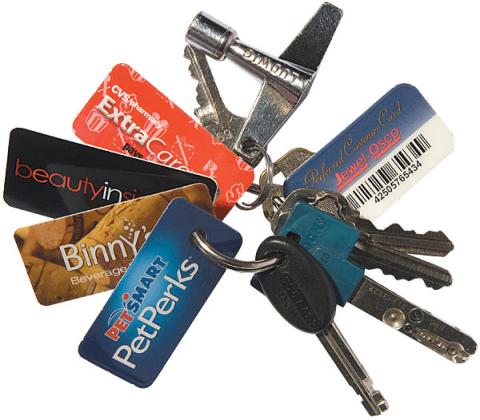
A Few More Tips
I have a few more tips that can save you some money on your grocery bill. One of them I will expand on further in a future hub, as I have quite a lot of information on that subject alone. For now, I will just share my last few tips with you.
- In Season: Eating in season produce can save you a bundle. Strawberries are great, but the price goes up when they are not in season. I know they can even be hard to come by when they are out of season. In season produce is far cheaper. Some of this depends on where you live, as well. Different fruits and vegetables are in season at different times. Locally grown produce is also often cheaper. Check where your produce is coming from.
- Farm Fresh: As I said, locally grown produce can be cheaper. No place is this more evident than at a farmer's market. I know where I grew up there is a great farmer's market that offers a wide variety of produce at great prices. The produce is fresh, delicious and locally grown. We would head to the market, grab all kinds of things from apples and corn to peas and beans. We came home with bags of fresh fruits and vegetables for far less than you would pay at the grocery store, and got far better quality.
- Grow Your Own: An alternative to the farmer's market takes a bit more work. You can grow your own garden. It can be as simple as a small herb garden in a window, or as expansive as a large vegetable garden. It all depends on how much space you have and how much time you have to devote to maintaining it. Even a small herb garden can save you money and spice up your meals. Some herbs can be kind of expensive for the tiny little jars you get. Grow your own and have fresh herbs for making dinner. Grow a single tomato plant, and you can have enough tomatoes for a whole summer. Home grown tomatoes always taste better than the ones you buy in the store, anyway. You could even grow enough to give to friends and family, if you have the time and space available. I even know some people who use their garden to make a little extra money on the side. Sell your own home grown vegetables to the farmer's market or trade for things you don't grow.
- Clean Cheap: Make your own cleaning products. Yes, you heard me right. I make my own cleaning products out of all sorts of things. I have many ideas for simple, inexpensive cleaning products that work just as well as the expensive products you buy at the store. It seems you need a cleaning product for everything lately. They even have a product for cleaning your washing machine. Shouldn't it really be clean anyway? Instead of spending money on a product to clean your washing machine, run it without clothes in it, with a half cup of bleach. It will kill any odor causing germs that may be lurking in there, and clean the machine nicely.
- Don't Discount the Dollar Stores: Dollar stores can be a great resource!! They have undergone a makeover in recent years and offer a lot more than they used to. They are a great place to get discounts on things like paper products, health and beauty products and even kitchen utensils and certain food items. Be careful, though! On certain items, they can be more expensive than your local grocery store, so go there with an idea of what the usual price is that you pay for certain things. Also bear in mind that they don't always carry the same things all the time. They are also a great place to get odds and ends, like candles and other miscellaneous items.
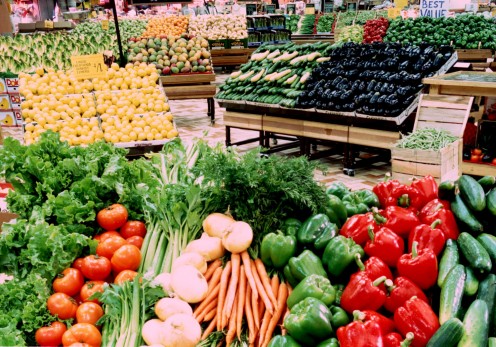
Check it Out
If you are interested in making your own homemade cleaning products to save money, and avoid toxic chemicals that can harm your family, check out my Hub here, Homemade Cleaning Products.
A Little Math
I hate math. I am actually really good at it, if I have a calculator. So, I saved you the stress of doing the math yourself, and I went ahead and did it. I have given you a lot of tips for saving money, but never really gave you an indication of how much you can save. I probably should have.
Not going into too much detail, that would take far too long, I can give you a pretty good indication of just how much money you can save on your grocery bill. I am not even counting the extra money you can save on other things through the coupon websites, and such. I am just covering savings on your groceries alone. You can tackle the math on the rest. In fact, for those that use some of my tips, I would love to hear some of your results.
I crunched a few numbers and if you follow most of these tips you can save anywhere from $2,000 to $3,500 a year on your grocery bill. That's about $170 to $290 a month. That is a lot of money. It all depends on how much you spend every month on groceries, how often you eat out, and all sorts of other factors, so there is no way to accurately determine how much you will actually save. I know that I have gone from spending about $100 a week on groceries to about $60 a week. That's a savings of $40 a week, or about $2,000 a year. I have not had the opportunity to take advantage of all of these tips, but I do use most of them as often as I can. On a general shopping trip, my store savings, not my total savings from following all of these tips, but my savings from sale prices, coupons, BOGOs and such, ranges from $10 per trip to $50 per trip. Add into that the money I have saved by following these other tips, and I have probably cut my grocery bill roughly in half.

